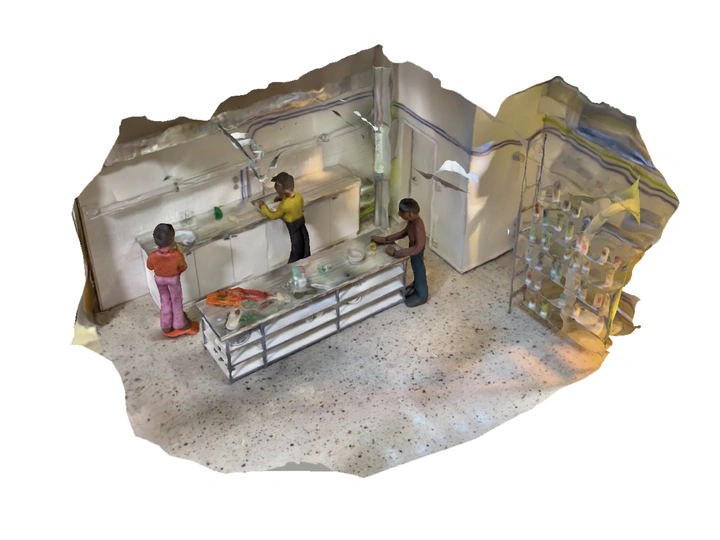Haunted Landscapes

Paula Granda Ojeda
Paula and Polly are two spatial researchers currently based in Berlin. Having a background in architecture studies, Paula and Polly focus their studies and practices at critical thinking approaches and research, which addresses the social and planetary responsibilities of architectural practice and education within the planetary emergency we are facing. With their master's thesis at the Berlin University of the Arts - and on-going (research) work Haunted Landcapes (Max Taut Award 1.Prize ) they aim to build a ground for discussion for a discussion questioning common architectural approaches.
Having studied architecture at the Münster School of Architecture, RWTH Aachen, and UdK Berlin, Paula and Polly are currently involved in political-urban discourses that attempt to structurally anchor climate and social justice: among other things, through involvement in the student initiative Klasse Klima or collaboration on the research-project Urban Development via Public-Civic-Partnerships at the HU Berlin.
Berlin 2053. From the expansion of oil drilling in the Ecuadorian rainforest and the extinction of insect populations on an unprecedented rate, to the inaccessibility to housing due to the removal of anti-discrimination laws in the housing market in Berlin. These overlays of stories, that tell of the possible destruction of the planet's livability, are consequences of the ubiquitous narrative of growth that underlies the state of exception we find ourselves in.
What responsibilities do we - as architects and spatial practitioners - assume in these precarious conditions we got used to? What does it mean for the architectural practice to question its fundamental narrative of growth, extractivism and progress? Can the active engagement with decolonial theories and practices help us understand these realities as a sequence of discontinuities and follow their interrelations?
The film Haunted Landscapes attempts to trace the complex overlays of these overwhelming realities, while searching for possible futures in these spaces built on residues of violence. In doing so, the film fictively interrelates five stories of becoming contaminated, entangled, and recomposed. Stories that tell of assemblages between human and non-human beings, technologies and cracks of the city. They are narratives without individual protagonists, without suspense and heroic endings, and instead stories that tell about care, responsibility and self-empowerment.
What do everyday practices that question human-centred planning processes have to do with the current housing struggles against the displacement processes at Hermannplatz? How do neighbourhood walks in Berlin and a sewing circle at Mehringplatz play a crucial role in these struggles?
Questioning progress-oriented approaches, the film Haunted Landscapes proposes a fictional scenario of Berlin in 30 years that, neither dystopian nor utopian, relates practices already taking place in Berlin on a daily basis.